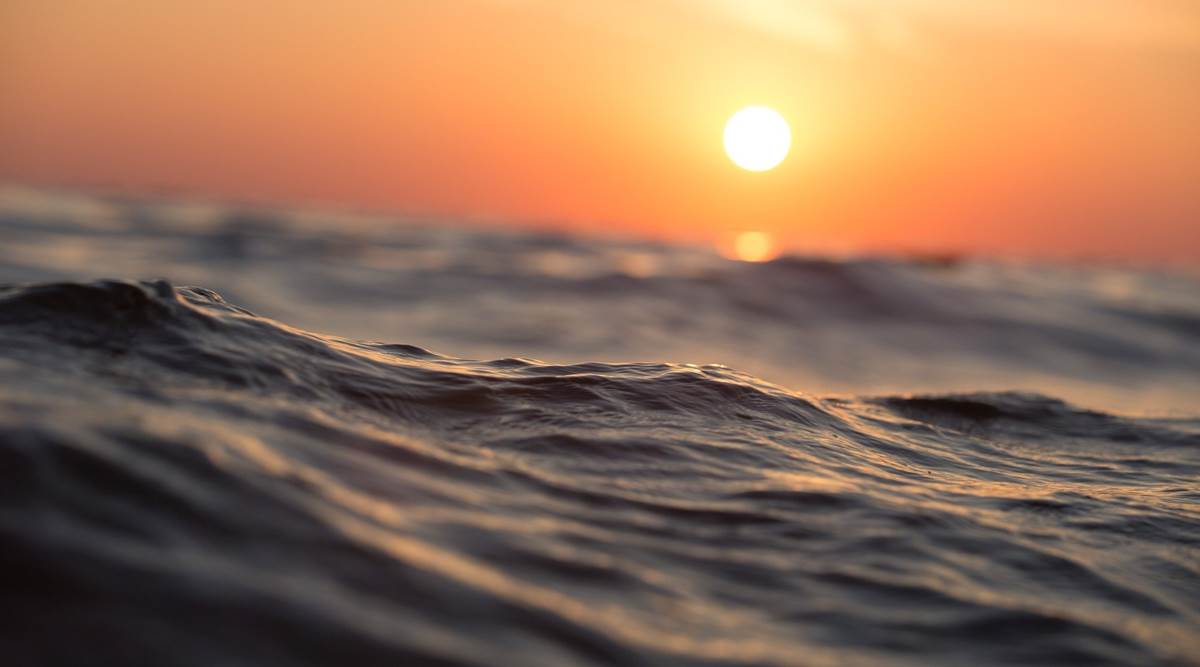 Oceans absorb about 30 per cent of carbon dioxide produced by humans, buffering the impacts of global warming. (Photo: Pixabay)
Oceans absorb about 30 per cent of carbon dioxide produced by humans, buffering the impacts of global warming. (Photo: Pixabay) Oceans support and promote life, covering over 70 per cent of the planet. Yet, they are more in need of support. With big fish populations largely depleted and 50 per cent of coral reefs destroyed, the balance has tipped and lest we do something about it today, the future of the planet will be at stake.
According to the United Nations, oceans produce at least 50 per cent of the planet’s oxygen, and are key to our economy with an estimated 40 million people being employed by ocean-based industries by 2030.
They also absorb about 30 per cent of carbon dioxide produced by humans, buffering the impacts of global warming.
Significance
And even though they are considered to be the lungs of the planet, every year, the World Oceans Day comes as a reminder on June 8, on just how reckless human activities — like garbage disposal, oil leaks, sewage, etc. — have become, and how they have been impacting the oceans.
The purpose of the day, as such, is to inform people of the “impact of human actions on the ocean”, “develop a worldwide movement of citizens for the ocean”, and “mobilise and unite the world’s population on a project for the sustainable management of the world’s oceans”.
Theme
This year’s theme is ‘The Ocean: Life and Livelihoods’. According to the UN website, “this year’s annual event will shed light on the wonder of the ocean and how it is our life source, supporting humanity and every other organism on Earth”. The theme is “especially relevant in the lead-up to the UN Decade of Ocean Science for Sustainable Development, which will run from 2021 to 2030. The Decade will strengthen international cooperation to develop the scientific research and innovative technologies that can connect ocean science with the needs of society”.
History
It was on June 8, 1992 — at the Earth Summit of the United Nations Conference on Environment and Development (UNCED) — that Oceans Institute of Canada proposed the idea for an international day for oceans.
In 2008, the United Nations General Assembly passed the resolution which declared June 8 to be observed every year as World Oceans Day.
Here’s what people tweeted on the occasion:
Tuesday is #WorldOceansDay.
From eating local, sustainably-sourced fish to stopping plastic pollution, we all have a role to play to #SaveOurOcean.
More from @FAO. ⬇️ https://t.co/wmZGFeZOZE pic.twitter.com/nV6imV4LK3
— United Nations (@UN) June 8, 2021
I had the privilege of growing up near the ocean.
It pains me to see how overfishing, pollution and rising temperatures are destroying our oceans and biodiversity.
As we mark #WorldOceansDay, let’s end our war on nature & ensure the health of our oceans for future generations. pic.twitter.com/xRn1iVUz48
— António Guterres (@antonioguterres) June 8, 2021
Today is #WorldOceansDay, let’s celebrate and Preserve our oceans for sustainability. My SandArt at Puri beach in Odisha India . pic.twitter.com/PnzWeONx56
— Sudarsan Pattnaik (@sudarsansand) June 8, 2021
In keeping Oceans Alive and uncontaminated is the future of Humanity. #SadhguruQuotes #WorldOceansDay pic.twitter.com/0gpiXNz7bi
— Sadhguru (@SadhguruJV) June 8, 2021
Do you remember the day….12th October 2019?
PM Shri @narendramodi himself went plogging at a beach in Mamallapuram for over 30 minutes.
On this #WorldOceansDay, let’s draw inspiration from him and ensure that our beaches are clean and are free from single use plastic. pic.twitter.com/vH3yiB7V0v
— Mann Ki Baat Updates मन की बात अपडेट्स (@mannkibaat) June 8, 2021
The ocean provides us all with vital resources to support life and livelihoods but if unsustainable fishing practices and deterioration of coastal and marine ecosystems continue, by 2050 there will be no usable fish stocks in the Asia Pacific region. #WorldOceansDay pic.twitter.com/YsRRAExHwr
— World Bank (@WorldBank) June 6, 2021
For more lifestyle news, follow us: Twitter: lifestyle_ie | Facebook: IE Lifestyle | Instagram: ie_lifestyle
- The Indian Express website has been rated GREEN for its credibility and trustworthiness by Newsguard, a global service that rates news sources for their journalistic standards.

